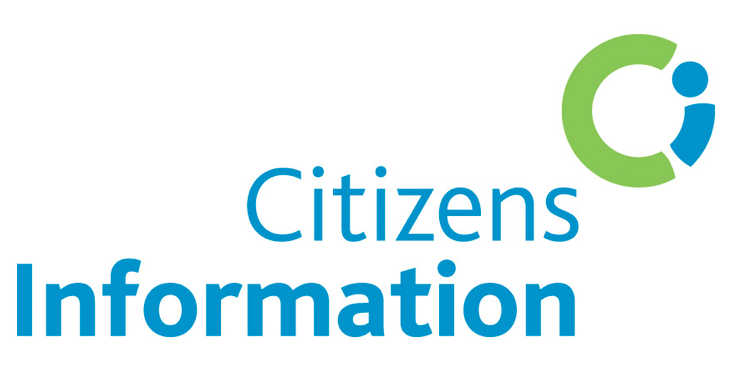 Know Your Rights has been compiled by Kerry Citizens Information Service which provides a free and confidential service to the public…
Know Your Rights has been compiled by Kerry Citizens Information Service which provides a free and confidential service to the public…
Q. What can someone do if their application for a social welfare payment is unsuccessful?
If you think you have been wrongly refused a social welfare payment, you can appeal this decision to the Social Welfare Appeals Office or if you can seek a review of the decision.
You must appeal within 21 days of the date of the decision letter. There is no charge for making an appeal.
To make an appeal you should download and fill out the Appeals Form which is available on line, include relevant documents (for example, your decision letter). You then email your completed form to swappeals@welfare.ie
You can also print and fill out the form and post it to Social Welfare Appeals Office, D’Olier House, D’Olier Street, Dublin, D02 XY31or get a paper form from your local Citizens Information Centre
Continued below…

.
Where can I get help to appeal a Social Welfare decision?
The Citizens Information Service (CIS) provides an advocacy service, and many of their advocacy cases relate to social welfare issues. So, if someone feels they have been wrong refused a payment, they should contact their local CIS.
They will go through the matter with you and see if you have grounds for appeal. If they can identify ground for an appeal, they will advise on what supporting documentation you may need to support your appeal and they will assist you to put together your appeal.
In most cases the CIS will request your file from DSP to examine the reasons for the refusal and identify the factors that gave rise to the decision
When appealing a decision, it is important to focus on the reason for the refusal and then provide evidence to show that the refusal was incorrect.
Q. Are all social welfare payments covered by the appeals process?
No, some social welfare payments are not covered by the appeals process. This is because they are not set out on a statutory basis, for example, Fuel Allowance, Household Benefits, the Back to School Clothing and Footwear Allowance or Supplementary Welfare Payments such as the Additional Needs Payment
There is no formal appeals process for these payments, but if you are unhappy with a decision on a payment not covered by the Social Welfare Appeals Process, you can ask for the decision to be reviewed by the section in the Department of Social Protection that dealt with your application. If you contact your local CIC, they can advise you about this.
Continued below…
Q. Who investigates the appeal?
The Social Welfare Appeals Office (SWAO) operates independently of the Department of Social Protection.
It is set up to provide an independent, accessible and fair appeals service in relation to entitlement to social welfare payments. The Office is headed by a Chief Appeals Officer and has its own Appeals Officers who make decisions on appeals.
As part of the appeal process, the SWAO notifies the Department of Social Protection section of the appeal and the DSP must send any relevant documents to the SWAO.
This also triggers a review of the original decision in the DSP to decide whether it should be reviewed in your favour.
In some cases, new evidence is reviewed by a social welfare inspector, or by a medical assessor if the appeal is about a sickness or disability-related payment.
If the decision is changed by the Department at this stage, you will be informed. The Department can only change the decision at this stage if the change is in your favour.
If the decision is not changed by the Department, your case will be examined by an Appeals Officer.
The Appeals Officer may decide your appeal based on written evidence. This is called deciding the appeal summarily or in some cases you may be invited to attend an oral hearing.
Q. What is an oral hearing?
Your appeal may be heard at an oral hearing. This can be arranged either because you have requested one or because the Appeals Officer decided that this is appropriate for your appeal.
Hearings are held in private. You will be invited to attend this hearing. It is informal and you can bring a representative to the hearing with you for support or assistance.
A representative can be a friend, colleague, public representative of trade union official. You can also bring legal representation.
The Citizens Information Service frequently represent people in oral hearings if they have assisted them on putting together their appeal and resources allow..
Hearings are held at a venue as near as possible to where you live.
Q. Are there any fees or other charges?
There is no fee for making an appeal about a social welfare decision to the Social Welfare Appeals Office.
If you have to travel to attend an oral hearing, the Social Welfare Appeals Office will compensate you for any reasonable travel expenses. You can also be compensated for any loss of earnings if you have to take time off work to attend.
Q. Is there a time for appealing a decision?
You must appeal within 21 days of the date of the letter notifying you of the Deciding Officer or Designated Person’s decision. In exceptional cases, appeals received outside 21 days may be accepted. If you are making your appeal outside of the time limit, you must explain why.
• For anyone needing information, advice or have an advocacy issue, you can call a member of the local Citizens Information team in Kerry on 0818 07 7860, they will be happy to assist and make an appointment if necessary.
The offices are staffed from Monday to Friday from 10am to 4pm. Alternatively you can email on tralee@citinfo.ie or log on to www.citizensinformation.ie for further information.
………………………………………………………………………………………………………………………………………………………………………………………………………………………………………………………………………………………………………………………………………………………………………………………………………













